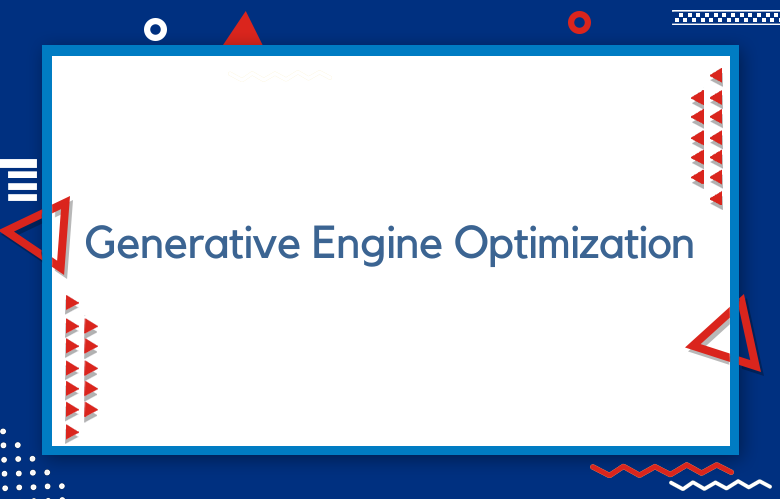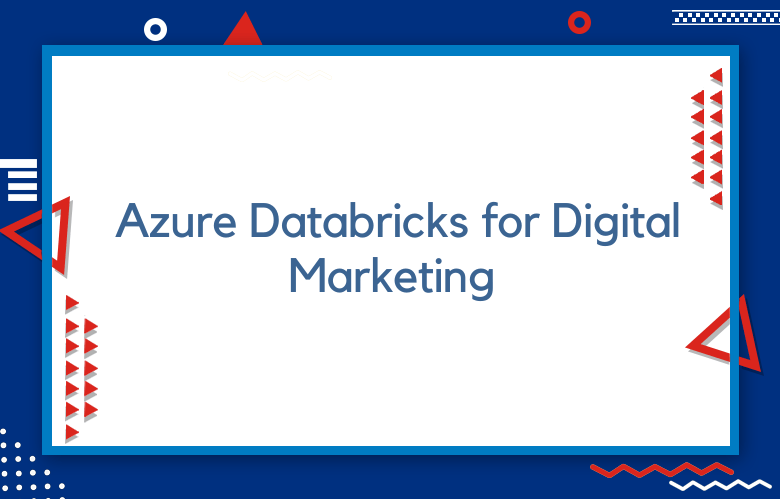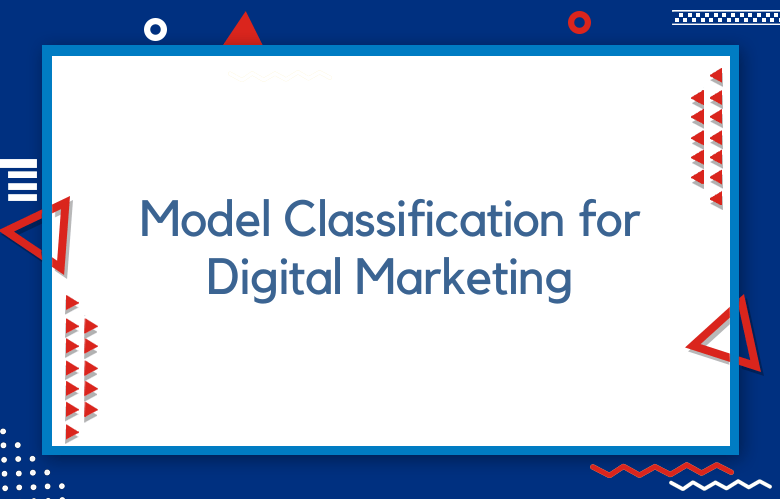Mastering Generative Engine Optimization

- Key Takeaways
- Understanding Generative Engine Optimization
- GEO and SEO Comparison
- Integrating GEO with SEO Practices
- Importance of GEO in Digital Marketing
- Impact on Organic Search and User Behavior
- Benefits of Implementing GEO
- Critical Strategies for Effective GEO
- Future Potential of GEO
- Final Remarks
- Frequently Asked Questions
Generative engine optimization (GEO) is changing the game in digital marketing with modern SEO strategies. Traditional methods often fall short of meeting modern demands. GEO leverages AI to enhance content creation and improve search visibility. It focuses on generating relevant, high-quality content quickly.
With GEO, businesses can connect with their audience more effectively. The benefits are clear: better engagement, higher rankings, and increased conversions. Embracing this innovative technique can set you apart in a crowded market.
Key Takeaways
- Generative Engine Optimization (GEO) enhances traditional SEO by focusing on how AI-generated content can improve search rankings and user engagement.
- To effectively integrate GEO with SEO, combine keyword research with AI tools to create relevant, engaging content that meets user needs.
- Understanding the differences between GEO and SEO can help marketers tailor their strategies for better visibility and relevance in search results.
- Implementing GEO can significantly impact organic search performance by improving content quality, which leads to better user behavior metrics like lower bounce rates.
- Focus on critical strategies for GEO, such as utilizing AI for content creation, optimizing for voice search, and analyzing user intent to stay ahead of competitors.
Understanding Generative Engine Optimization
Definition of GEO
Generative engine optimization (GEO) refers to enhancing content for generative AI engines. These engines create search results based on user input. They analyze vast amounts of data to deliver tailored answers. This technology is vital as it shapes how users interact with information online.
Importance of Optimization
Optimizing content for generative search technologies is crucial. As more people use AI-driven search engines, traditional SEO methods may not suffice. GEO focuses on how generative AI understands and processes queries. This means businesses must adapt strategies to meet new search behaviors in this era. Well-optimized content can lead to better visibility in generative search results.
Impact on Website Traffic
GEO can significantly transform website traffic into a loyal customer base. When users find relevant information quickly, they are more likely to return. Engaging and informative content builds trust. This trust encourages users to explore products or services further.
- Improved user experience
- Increased engagement rates
- Higher conversion rates
By focusing on these areas, businesses can see a marked improvement in customer retention.
Transforming Customer Relationships
Generative AI creates a unique search-generative experience. It allows companies to better understand user intent. By analyzing patterns in search behavior, businesses can tailor their offerings. This personalization fosters more profound connections with customers.
For example, an online bookstore using GEO might recommend books based on previous searches. For example, if a user frequently searches for mystery novels, the engine highlights similar titles. This targeted approach enhances user satisfaction and increases sales.
Future of Generative Search Engines
The generative search engine landscape is evolving rapidly. As technology advances, so does the complexity of user queries. Businesses must stay informed about changes and trends in generative AI research. Adapting to these shifts will ensure they remain competitive.
AI engines will continue refining their algorithms, meaning optimization strategies need constant updates. Companies should invest time in understanding these developments.
GEO and SEO Comparison
Target Audiences
GEO targets users who seek AI-driven search results. These users expect quick, synthesized information. They often look for answers rather than browsing through links.
SEO, on the other hand, caters to traditional search engine users. These users often prefer link-based results and may want to explore multiple sources before deciding.
Content Presentation
Content presentation differs significantly between GEO and SEO. In SEO, results show links, each leading to a specific page. Users click on these links to find information.
GEO presents information in a more integrated way. It synthesizes data from various sources into one answer. For example, if someone asks about a local restaurant, GEO provides details like reviews, hours, and menus all in one place. This reduces the need for multiple clicks and enhances user experience.
Ranking Focus
The focus also shifts from individual page rankings in SEO to comprehensive content integration in GEO. In traditional SEO, experts aim to rank high on search engine results pages (SERPs). They analyze keywords and backlinks to improve visibility.
In contrast, GEO emphasizes overall content quality and relevance. It gathers data from numerous sources to provide a complete answer. This means that site owners must think beyond just optimizing individual pages. They need to ensure their entire content ecosystem is valuable and interconnected.
Similarities
Despite their differences, both strategies share some similarities. Both aim to deliver relevant information to users and require understanding user intent and behavior. SEO experts analyze trends to optimize content effectively.
Both approaches can benefit from insights gained through AI search performance data. For instance, AI tools can enhance keyword research for local SEO efforts.
Competitive Landscape
Businesses must adapt their strategies accordingly. Companies that understand both GEO and traditional SEO will have an advantage. They can create content that meets diverse user needs.
As search engines evolve, so do the techniques used by marketers. Understanding the nuances between GEO and SEO is crucial for success in digital marketing today.
Integrating GEO with SEO Practices
Advanced Concepts
GEO can enhance traditional SEO techniques. Combining these methods creates a synergistic SEO approach. This means using both strategies to improve online visibility. For instance, businesses can focus on local optimization while considering AI-driven search trends.
Analytics play a crucial role in this integration. They help identify which keywords drive traffic. Companies can refine their content strategies by analyzing data from both GEO and SEO.
Keyword Research
Effective keyword research is vital in today’s search landscape. It should align with both conventional SEO techniques and new AI behaviors. Understanding user intent is critical. Users may search on Bing differently than on Google. Therefore, businesses need to adjust their keyword strategies accordingly.
Utilizing tools that analyze search trends is beneficial. These tools provide insights into what users search for and reveal how often specific keywords are used. This information helps you choose the right keywords for content creation.
Technical Practices
Technical SEO practices support the successful integration of GEO and SEO. Proper website structure improves user experience and site performance.
Implementing schema markup is another effective technical practice. Schema helps search engines understand content better. It enhances visibility in search results, making it easier for users to find relevant information.
Content Distribution
Content distribution is a major part of any marketing strategy. A well-planned distribution strategy ensures that content reaches the right audience. Businesses should share their content across multiple platforms, including social media, email newsletters, and blogs.
Engaging with the audience through various channels increases visibility and builds brand loyalty over time. Companies should monitor engagement metrics to assess the effectiveness of their distribution efforts.
Overlapping Strategies
The overlap between GEO and SEO can lead to better results in search marketing programs. When executed correctly, both strategies complement each other. For example, local business listings can boost visibility in local searches while enhancing overall SEO performance.
New algorithms and user behaviors continuously evolve how searches are performed, and adapting to these changes is necessary for maintaining a competitive edge.
Importance of GEO in Digital Marketing
AI Technologies
AI technologies are changing how consumers search online. Many people now rely on AI for recommendations and information, which affects their decision-making processes.
GEO plays a crucial role here. It helps brands better understand consumer behavior. Companies can predict users’ wants by analyzing data and tailoring their digital marketing strategies accordingly. This approach increases engagement and drives sales.
Brand Visibility
The digital landscape is crowded. Companies compete fiercely for attention. GEO enhances brand visibility in this environment.
For instance, local businesses can use GEO to attract nearby customers. They can create location-based campaigns that resonate with regional interests. This strategy boosts foot traffic and online interactions, resulting in a more substantial brand presence.
Personalized User Experiences
Personalization is critical in today’s digital world. Consumers expect tailored experiences that meet their needs. GEO enables companies to deliver this through customized content. Brands can create messages based on user preferences and behaviors.
For example, a music streaming service can suggest playlists based on listening habits. Similarly, an online clothing store can recommend outfits based on previous purchases. These personalized interactions enhance customer satisfaction.
GEO also helps brands understand seasonal trends and local events, allowing them to adjust their marketing strategies accordingly. This flexibility leads to more effective campaigns.
Competitive Advantage
GEO provides a competitive edge in digital marketing. Companies that leverage this technology stand out from their competitors. They offer unique experiences that attract and retain customers.
By focusing on location-specific content, brands can build loyalty. Customers appreciate when businesses understand their local culture and needs. This connection fosters trust and encourages repeat business.
Moreover, as more companies adopt GEO, it becomes essential for survival. Those who ignore it risk falling behind in the digital race.
Impact on Organic Search and User Behavior
User Interaction
Generative engine optimization (GEO) changes how users interact with search results. Users now expect immediate answers rather than sifting through multiple links. This shift affects their online behavior. They want quick, relevant information tailored to their needs.
Search engines have adapted to this expectation. They now provide more direct answers at the top of the results page, significantly impacting organic search strategies. Websites must optimize for these new formats to maintain visibility.
Shifts in Expectations
Expectations around search results have evolved. Users look for comprehensive answers quickly. They often prefer AI-generated content that addresses their questions directly. This trend pushes traditional search capabilities aside.
They deliver concise information that resonates with users. As a result, conventional search engines face pressure to enhance their offerings. They need to match the speed and relevance that GEO provides.
Implications for SEO
GEO profoundly influences organic search strategies. Content creators must rethink their approach to website optimization and focus on producing high-quality, relevant content that meets user needs.
The rise of AI-generated responses means websites must adapt. Keywords remain important, but context is crucial too. Content should align with user intent and provide clear answers.
Traditional search engine optimization techniques may no longer suffice. Marketers must embrace new strategies that incorporate GEO principles. This includes understanding how different search engines rank content based on relevancy and user interaction.
Content Creation
Content creation will evolve alongside these changes. Writers must create engaging, informative pieces that capture attention quickly. Short paragraphs and bullet points can help convey information effectively.
Developing a solid online presence becomes essential in this landscape. Websites should prioritize user experience and site speed. A well-optimized site will improve its chances of ranking higher in search results.
To summarize, GEO reshapes both user behavior and organic search strategies. Users demand immediate and relevant information, pushing traditional methods to adapt or fall behind.
Benefits of Implementing GEO
Increased Visibility
Through generative engine optimization, businesses gain greater visibility in AI-driven search results. This visibility leads to more clicks and visits to websites. When users search for information, they often choose the top results. If a business ranks high, it attracts more potential customers.
In 2022, studies showed that about 75% of web users never scroll the first page of search results. By optimizing content with GEO, businesses can improve their chances of appearing on that crucial first page. This increased visibility can directly impact brand recognition and trust among consumers.
Improved Engagement
Optimized content leads to better user engagement. When businesses use GEO, they create relevant and tailored content. This type of content resonates with users, keeping them interested.
For example, a company that sells sports equipment might use GEO to highlight customer reviews and product benefits. Users who see this engaging content spend more time on the site. Higher engagement often translates into improved conversion rates. Companies focusing on user experience see up to a 400% increase in conversion rates.
Long-Term Strategy
Staying ahead in digital marketing requires a long-term strategy. The landscape is constantly evolving due to new technologies and changes in consumer behavior. By implementing GEO now, businesses prepare for future changes.
Companies that adopt GEO early can adapt faster than their competitors. They can respond to trends and shifts in user interests effectively. This proactive approach helps maintain relevance in an ever-changing digital world.
Many experts predict that AI will dominate search engines even more in 2023. Businesses using GEO will be ready to leverage AI advancements for better performance and reach.
Competitive Advantage
GEO offers a significant competitive advantage as well. Businesses that optimize their online presence stand out in crowded markets. They attract customers who are looking for specific solutions or products.
Using GEO techniques, companies can outperform rivals who do not prioritize optimization. This advantage often leads to increased market share and profitability over time.
By focusing on these benefits, businesses can see how important it is to implement generative engine optimization now. The advantages of increased visibility, improved engagement, and long-term strategy position them for success in the digital age.
Critical Strategies for Effective GEO
Content Quality
High-quality content is essential. Generative AI platforms prioritize user satisfaction, which means content must be relevant and engaging. It should also address user needs directly. Consider what users are searching for and focus on providing clear answers.
Creating unique content enhances visibility. Originality helps your work stand out. Avoid duplicating existing material. Instead, innovate with fresh ideas and perspectives. This approach can improve your rankings on AI-driven search engines.
User Intent
Understanding user intent is crucial. Analyze what users want when they search for information. This can vary from seeking knowledge to finding solutions. Tailor your content to meet these expectations.
Utilize keywords effectively but naturally. Keywords should fit seamlessly into the text. Overstuffing keywords can lead to search engine penalties. Balance is critical to achieving both relevance and readability.
Continuous Monitoring
Adapting strategies is vital for success. Generative AI trends change rapidly, and algorithms evolve, affecting how content ranks. Regularly monitor performance metrics to gauge effectiveness.
Use analytics tools to track engagement levels. Look at bounce rates and time spent on pages. These metrics provide insight into user behavior. Based on this data, adjust your strategies as needed.
Stay updated with AI developments. Follow industry news and research studies. This knowledge helps you anticipate changes in algorithms.
Innovative Techniques
Employ innovative techniques in your GEO strategy. Experiment with different formats like videos or infographics. Visual content often captures attention better than text alone.
Incorporate interactive elements, too. Quizzes or polls engage users more actively, which increases the likelihood of sharing your content and boosts its reach.
Leverage social media platforms for distribution. Share your high-quality content across various channels. Engaging with audiences on these platforms can drive traffic back to your site.
Key Factors for Success
Several key factors contribute to successful GEO strategies:
- Consistency: Regularly update and publish new content.
- Relevance: Ensure all content aligns with current trends.
- Engagement: Encourage user interaction through comments or shares.
- Optimization: Continuously refine SEO practices based on data insights.
Focusing on these factors strengthens your overall approach to generative engine optimization.
Future Potential of GEO
Evolving Role
GEO will continue to evolve as AI technologies advance. They are integrating AI systems into digital marketing, which changes how brands connect with their audiences. By 2025, many businesses will rely on GEO to enhance user experiences. This shift will create new opportunities for targeted marketing.
GEO allows marketers to analyze vast amounts of data quickly. Companies can better understand consumer behavior and adjust their strategies in real time. This adaptability makes GEO essential in a fast-paced market.
Importance in Digital Marketing
The importance of GEO in shaping future digital marketing strategies cannot be overstated. As more brands embrace this approach, competition will intensify. Businesses that utilize GEO effectively will have a significant advantage.
Successful brands will focus on building trust through transparency and authenticity in the coming years. Consumers are aware of data privacy issues, and brands prioritizing ethical practices will stand out in the crowded marketplace.
Leveraging GEO for Competitive Edge
Businesses can leverage GEO to maintain a competitive edge. They should invest in understanding their industry’s landscape and identifying key areas where GEO can be applied. This helps companies stay ahead of trends and adapt to changes quickly.
Companies must also educate their teams about GEO’s potential. A knowledgeable team can implement GEO strategies that drive results.
Adopting GEO means embracing change and innovation. Brands must keep up with evolving technologies like Gemini and other AI platforms.
Areas of Focus
Several areas will be critical for businesses looking to succeed with GEO:
- Data Analysis: Understanding customer data is vital.
- Content Personalization: Tailoring messages increases engagement.
- Brand Trust: Building trust fosters loyalty among customers.
- Adaptability: Being flexible allows quick responses to market shifts.
Final Remarks
Generative Engine Optimization (GEO) is a game changer for your digital marketing strategy. It blends seamlessly with SEO, enhancing visibility and user engagement. By adopting GEO, you can tap into fresh opportunities, drive organic traffic, and improve user experience. The future looks bright as you harness its potential to stay ahead of the competition.
Now’s the time to dive in. Start integrating GEO into your practices today. Experiment with key strategies and watch your online presence soar. Don’t miss out on the benefits that GEO can bring to your brand. Take action and see the difference it makes!
Frequently Asked Questions
What is Generative Engine Optimization (GEO)?
Generative Engine Optimization (GEO) focuses on optimizing content generated by AI engines. It enhances visibility and relevance in search results, ensuring that AI-driven content effectively meets user intent.
How does GEO differ from SEO?
While SEO targets traditional search engines, GEO specifically optimizes for generative AI engines. GEO emphasizes content quality and engagement to improve rankings in AI-generated responses.
Why is GEO important for digital marketing?
GEO is crucial as it aligns with the rise of AI in search. It helps brands stay relevant, capture audience attention, and enhance user experience through tailored, high-quality content.
What are the benefits of implementing GEO?
Implementing GEO leads to improved organic traffic, higher engagement rates, and better alignment with user expectations. It also boosts brand authority by providing valuable, relevant content.
What key strategies should be used for effective GEO?
Effective GEO strategies include creating high-quality, contextually relevant content, leveraging data insights, and optimizing based on user feedback and performance metrics.
How does GEO impact user behavior?
GEO enhances user experience by delivering personalized and relevant content. This leads to increased engagement, extended site visits, and higher conversion rates.
What is the future potential of GEO?
The future of GEO looks promising as AI technology evolves. Businesses that adopt GEO will likely gain a competitive edge by adapting to changing search behaviors and preferences.



